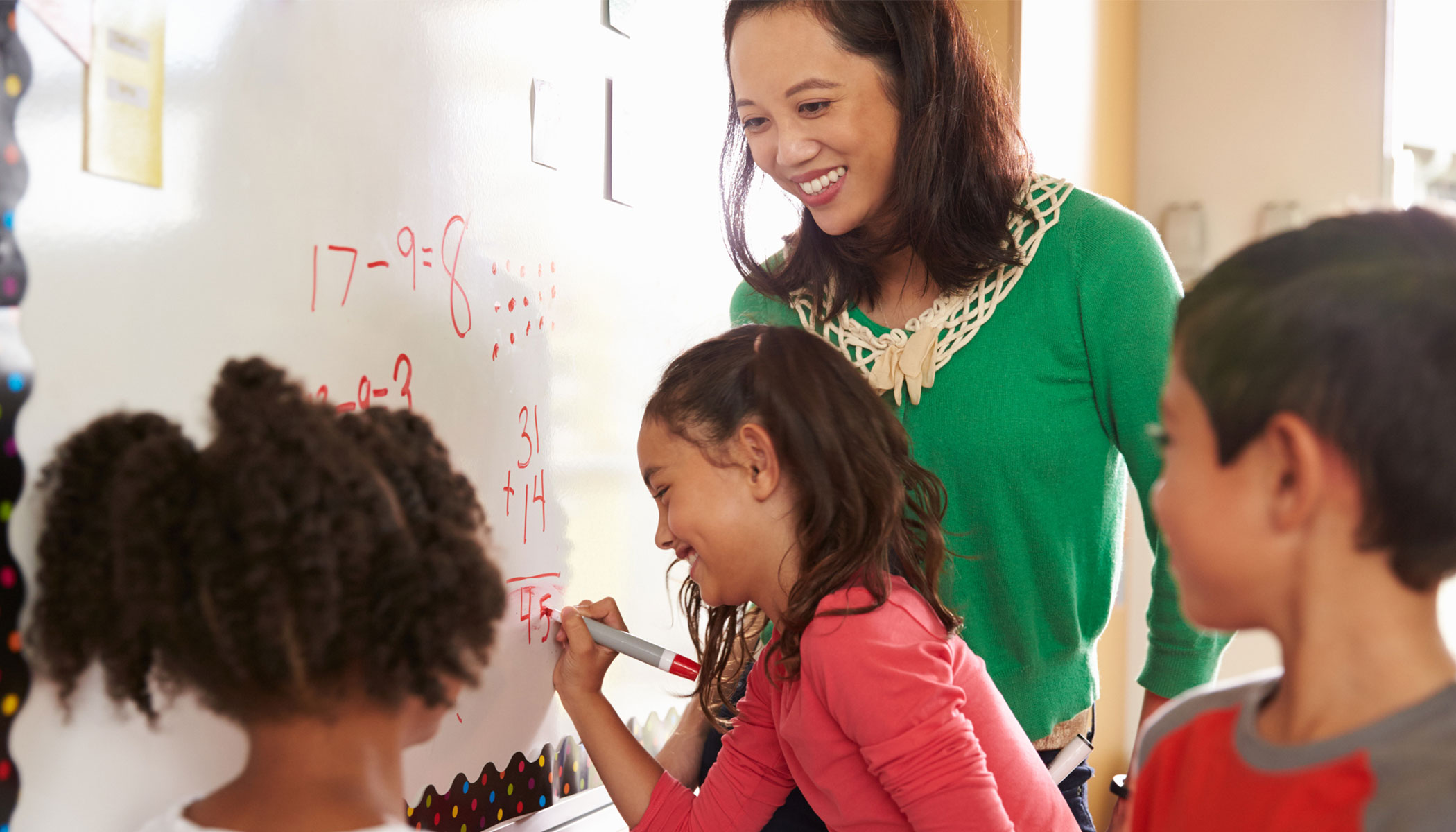Jul 22, 2021 · 4 min read
A Bold Initiative to Accelerate Research and Development in Education

In 2018, the Chan Zuckerberg Initiative (CZI) and the Bill & Melinda Gates Foundation (BMGF) began jointly exploring whether breakthrough education solutions could be developed through an accelerated discovery and development effort. It began with a Request for Information.
We received 465 responses from 37 states, as well as internationally. Twenty percent (20%) of the responses came from organizations that are owned or led by people of color. Concepts were bold, inspirational and inclusive.
These ideas prompted both philanthropies to imagine the potential of using an inclusive discovery and development approach that places educators at the center. What if educators, researchers and developers could co-design and then rapidly iterate on solutions together?
Fast forward three years and on the heels of a global pandemic, we asked ourselves what could be achieved if we applied the same energy, resources, and sheer grit to the challenge of educating our nation’s young people as we did to developing and distributing Covid-19 vaccines?
The result? The official launch of the Advanced Education Research & Development Fund, or AERDF. Alongside our colleagues at the Bill & Melinda Gates and Walton Family foundations, we’re supporting this new fund in applying what is known as inclusive research and development to tackle teaching and learning challenges that disproportionately affect Black and Latino students, and students of all races experiencing poverty.
What do we mean by inclusive R&D? From the get-go we have included community members who are closest to the problems we are attempting to solve. They work with researchers to initially scope out, test, and evaluate new methods throughout the development process, in order to improve the quality and feasibility of the programs before they reach the classroom. This approach bridges the gap between research on the one hand and teaching practices and tools on the other.
We have included community members who are proximate to the problems we are attempting to solve. They work with researchers to initially scope, iterate and evaluate the work throughout the process, in order to improve the quality and feasibility of the programs that bring the research findings to life.
The first of AERDF’s programs, known as EF+Math, aims to double the number of Black and Latino students in grades three through eight who are proficient in math, by building on evidence that executive function skills, such as working memory, help students learn math much more effectively. The program, which began two years ago, uses inclusive R&D to test different ways of blending executive functioning skills development and math instruction. A diverse community of more than 250 educators, researchers, developers, and advisors are part of these funded R&D projects. They work alongside an Educator Leadership Council, made up of teachers and other education professionals from across the country.
A second program, known as Assessment for Good, is focused on dramatically improving conditions for the social-emotional health and positive academic outcomes of students in third through seventh grade, with a special focus on Black and Latino students. It will do this through R&D projects that advance the capabilities needed in a responsive and accessible system of identity-affirming, dynamic assessment, which will provide educators and parents with valuable information about students’ assets and abilities, which can be used for more relevant and precise instruction and intervention for all students. The program announced a Request for Proposals (RFP) to fund innovative ways to assess how learning environments support specific aspects of students‘ emotional and identity development, and a Request for Information (RFI) seeking information on how assessment can be conducted through a variety of formats.
We believe that ambitious research projects, created from the start with community and stakeholder involvement, will result in the types of innovations long absent from our nation’s classrooms. By embracing inclusive R&D, philanthropy can help ensure teaching and learning challenges that disproportionately affect students of color and those experiencing poverty are addressed with the most effective research available.
###
About the Chan Zuckerberg Initiative
The Chan Zuckerberg Initiative was founded in 2015 to help solve some of society’s toughest challenges — from eradicating disease and improving education, to addressing the needs of our local communities. Our mission is to build a more inclusive, just, and healthy future for everyone. For more information, please visit chanzuckerberg.com.





